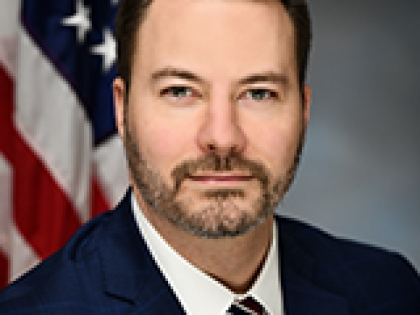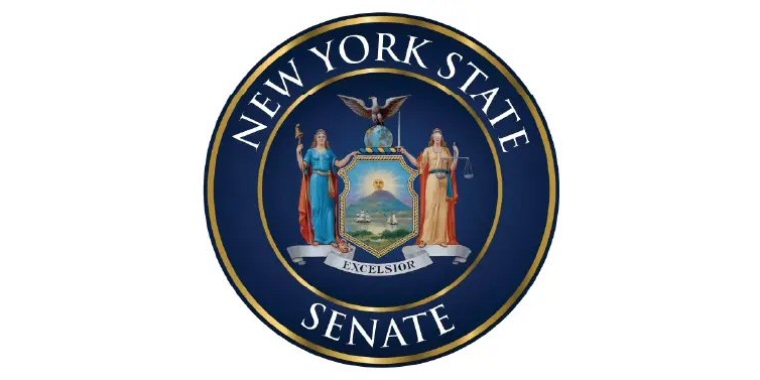
Ortt: Budget Assists Mental Health, Disabilities
Robert G. Ortt
April 12, 2015
As Chairman, Ortt Sees Progress on Key Issues
State Senator Rob Ortt (R,C,I – North Tonawanda) said this year’s state budget will assist those facing mental illness and disabilities. As chairman of the Senate Committee on Mental Health and Developmental Disabilities, Ortt said issues raised by individuals, families, and advocacy groups were central to his approach to the budget.
“While this committee’s budget may be small relative to other portions of the state budget, its impact is far-reaching,” said Ortt. “We have a special obligation to serve essential and vulnerable segments of our populations. Those who need our help the most – children, the mentally-ill, addicts, veterans, individuals with disabilities – will get critical services because of this budget.”
Mental Health
Of note, two widely acclaimed mental health initiatives will soon be coming to Niagara County. The budget increased funding for the Joseph P. Dwyer Veteran Peer to Peer Pilot Program to $3.2 million across the state. The program utilizes anonymous veteran-to-veteran counseling. In addition, $1.5 million is dedicated statewide to Crisis Intervention Team (CIT) and diversion services. CITs train law enforcement on effective best practices for dealing with mentally-ill offenders.
Ortt was also instrumental in allocating $1 million to launch children’s prevention and awareness initiatives in New York. Children’s mental health initiatives have been a priority for Ortt. He has worked with State Senator Pat Gallivan to fight the potential closure of Western New York Children’s Psychiatric Center. The center serves mentally ill children and the state is proposing merging them into the Buffalo Psychiatric adult facility.
“Because mental illness knows no age, we’re increasing education and awareness among our vulnerable youth population,” Ortt said. “And we’re fighting so that Western New York children with mental illness get appropriate treatment and remain out of adult psychiatric facilities.”
The budget also includes $300,000 for FarmNet to provide targeted support to farmers as well as $100,000 for the Mental Health Association in New York State, which provides mental health first aid.
“Mental illness affects approximately one in four individuals, yet only two-thirds of those suffering seek the services that they need,” said Cheryl Blacklock, Executive Director of the Mental Health Association in Niagara County. “Because mental illness has such a far-reaching impact and complicated diagnoses, addressing it requires vital resources and education for individuals, families, and communities.”
Developmental Disabilities
On the developmental disability side, Ortt pointed to financial and structural support to those in need. Four developmental disability bills that were vetoed by the governor were successfully modified and included in this year’s budget. These bills pertained to transportation, employment, and housing.
“These issues were critical to individuals with disabilities, their caregivers and their providers,” Ortt said. “It’s important to fully incorporate the needs of the individuals, NOT Albany, into the services we provide in the disability community.”
Steven Kroll, Executive Director, NYSARC, Inc. said, “People with developmental disabilities and their families face the prospects of much uncertainty in the coming years. However, the provisions in the State Budget are an important first step, and we appreciate the support of the Governor and Legislature for these New Yorkers. NYSARC has strongly urged the Governor and his agencies to gather and provide information so that families caring for people with developmental disabilities can receive the critical answers they’ve been waiting for and plan accordingly. Timely, accurate data is vital in helping the developmental disability community, the Legislature, and the Administration work together to ensure that necessary supports and services are available to those who need them most.”
Key language included in the developmental disability portion of the 2015-16 State Budget:
- Authorizing the Office for People with Developmental Disabilities to contract with outside entities to conduct an assessment of the mobility and transportation needs of persons with disabilities and other special needs populations.
- Conducting a statewide review of individuals on the residential registration waitlist and develop a plan to increase housing alternatives;
- Developing a plan to assist individuals currently working in sheltered workshop programs choice in transitioning to integrated community work settings;
- Establishing a panel to assist in the development of a transformation plan;
- Reporting monthly on developmental centers and community investments; and
- Making information available and report on the implementation of the front door policy.
Additional key funding in the developmental disability portion of the 2015-16 State Budget:
- $150,000 for the Cerebral Palsy Associations of New York State;
- $2 million for new service opportunities for individuals with disabilities that are currently living at home and whose caregivers are unable to continue caring for them; and
- $1 million for Office for People with Developmental Disabilities reporting and panel responsibilities.
Substance Abuse
Ortt also serves as co-chairman of the New York State Senate Task Force on Heroin and Opioid Addiction. He pointed to increased funding to fight heroin and opioid abuse as another success of the budget. New York was recently designated as the top state for heroin trafficking, consistent with the rising number of deaths attributed to the drug. Western New York is particularly vulnerable due to its proximity to drug traffic through multiple border crossings.
“The strength and widespread accessibility of this drug is tragically cutting lives short and tearing apart families,” said Ortt. “That's why awareness for the public, treatment for victims, and steep punishments for dealers is so critical.”
Horizon Health Services President and CEO Anne Constantino said, “Targeting the growing heroin endemic must be a top priority for law enforcement, the substance abuse community, educators, and public officials in Western New York. We are thankful that this year’s budget allocates vital resources to emphasize prevention and recovery.”
Share this Article or Press Release
Newsroom
Go to Newsroom

